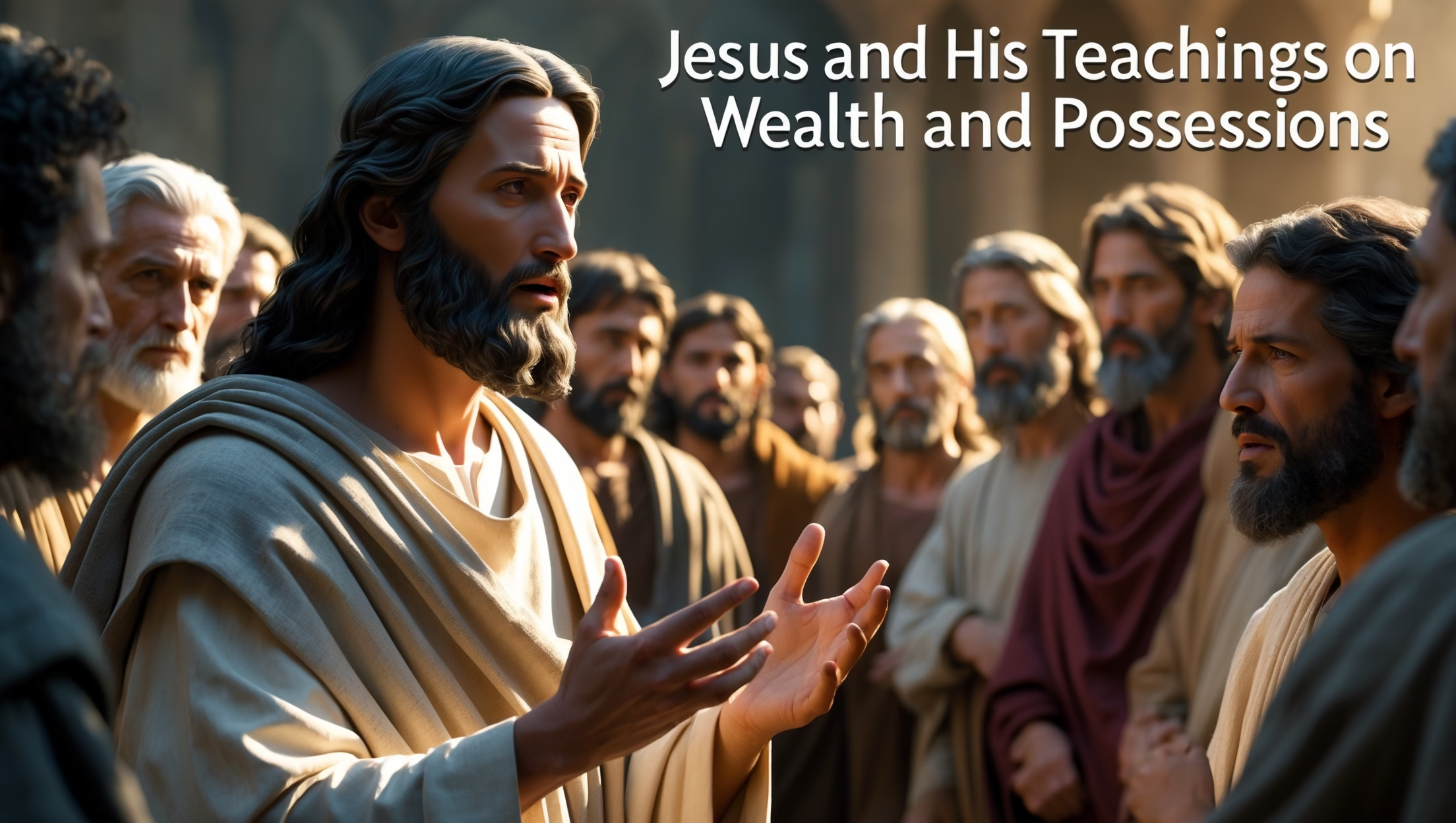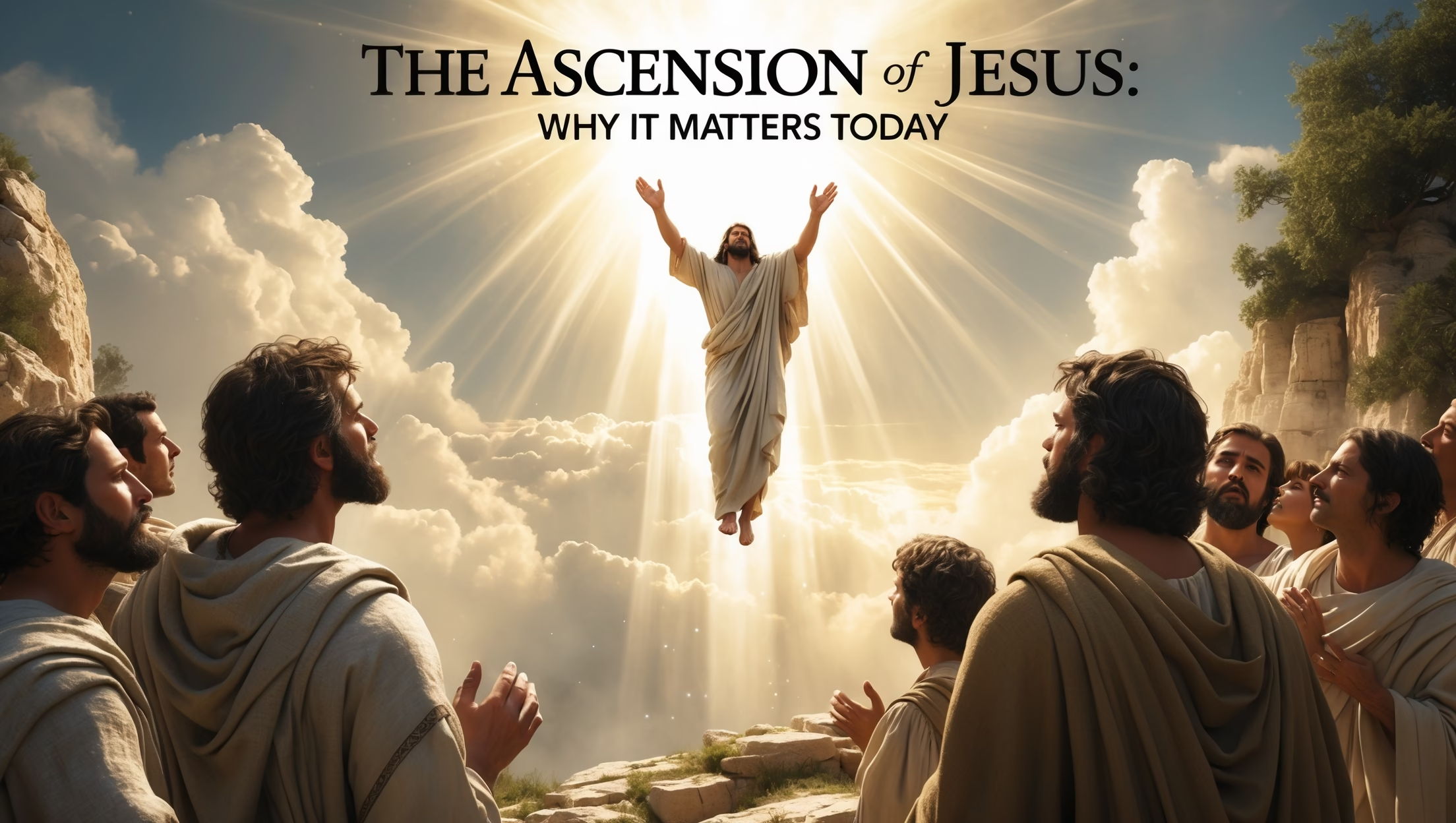The Divine-Human Need for Sleep
Sleep is one of the most fundamental human needs, and yet, it is often overlooked in our spiritual reflections about Jesus. When Christians think of Christ, they focus on His teachings, miracles, death, and resurrection. Rarely do they consider His sleeping habits. However, the Gospels provide glimpses into Jesus’ relationship with rest—moments that reveal both His humanity and His divinity. By paying attention to these details, we not only learn more about Jesus’ life but also discover how to reshape our own approach to rest, work, and spirituality.

Sleeping Through Storms (Mark 4:38)
One of the most striking episodes of Jesus’ sleep is found in Mark 4:38, where He falls asleep on a cushion in a boat while a furious storm threatens the lives of His disciples. The disciples, in panic, wake Him and cry out: “Teacher, don’t you care if we drown?”
At first glance, this scene seems almost paradoxical. How could someone sleep through a violent storm? But the detail is not accidental. The Gospel writer deliberately highlights Jesus’ calm, trusting rest in the middle of chaos. His ability to sleep while the storm raged symbolizes His absolute trust in the Father’s care. While the disciples were gripped with fear, Jesus embodied peace, demonstrating that true security lies not in circumstances but in God’s sovereignty.
This moment also has profound theological significance. Sleep, in biblical thought, often symbolizes trust. Psalm 4:8 says, “In peace I will lie down and sleep, for you alone, Lord, make me dwell in safety.” By sleeping through the storm, Jesus enacted this verse, showing us that rest itself can be a form of faith.
Nighttime Prayer Vigils (Luke 6:12)
If one side of Jesus’ sleep habits highlights trust, another reveals discipline. In Luke 6:12, we read: “One of those days Jesus went out to a mountainside to pray, and spent the night praying to God.” This was not an isolated incident. The Gospels record several occasions where Jesus chose to forgo sleep in order to pray.
This practice reveals a healthy balance between rest and spiritual devotion. Jesus did not treat sleep as unimportant, but He also recognized times when spiritual needs outweighed physical ones. His night vigils illustrate the human need for alone time, a sacred rhythm of withdrawing from the crowd to commune with God.
It is crucial to note, however, that these vigils did not define His entire lifestyle. Jesus did not live in perpetual sleeplessness. Instead, He alternated between sleep and prayer, rest and work. This balance shows us that even the Son of God acknowledged both His bodily limitations and the importance of spiritual nourishment.
The Humanity of Needing Rest
The very fact that the Gospels mention Jesus sleeping is deeply significant. In a culture where divinity was often equated with tireless power, the image of Jesus sleeping highlights His true humanity. He was not a phantom or superhuman figure pretending to be mortal. He genuinely experienced fatigue, the heaviness of eyelids, and the bodily need for restoration.
This point counters early heresies like Docetism, which denied Jesus’ humanity. By acknowledging His need for rest, the Gospels affirm that the incarnation was complete: Jesus was fully divine, but also fully human. His sleep patterns demonstrate the union of body and spirit in the Christian understanding of the person.
Modern Implications: Burnout vs. Christ’s Rhythm
In our modern age, rest is often undervalued. Many cultures prize productivity over restoration, leading to what has been called a “burnout culture.” People push themselves with long work hours, sleepless nights, and constant digital distractions. Rest is often seen as laziness, and sleep deprivation is worn as a badge of honor.
Against this backdrop, Jesus’ relationship with sleep offers a profound corrective. The Gospels remind us that even the Son of God needed rest. If He did not consider Himself above sleep, then neither should we. To rest is not weakness—it is wisdom. To sleep is not laziness—it is an act of aligning with the created order.
Furthermore, the balance Jesus struck between sleep and prayer teaches us that both physical and spiritual rest matter. We are not merely bodies, nor are we merely souls. To live well, we must honor both dimensions of our humanity.
Sleep as a Spiritual Practice
Another key takeaway is that sleep itself can become a spiritual practice. In the same way we practice prayer, fasting, or meditation, we can also practice rest as a form of trust in God. By laying aside anxiety and entering into deep rest, we imitate Jesus in the boat—trusting the Father’s care even when storms rage around us.
Christians can also reclaim rest as resistance against modern pressures. Sabbath rest, a rhythm deeply rooted in Scripture, is more than just a day off; it is a declaration that life does not depend solely on our labor but on God’s provision. In this way, sleep becomes not just a biological necessity but a spiritual discipline.
Takeaway: If the Son of God Needed Rest, Why Don’t We?
Ultimately, Jesus’ sleep patterns highlight one essential truth: rest is holy. Jesus’ example teaches us to embrace sleep as both a human necessity and a divine gift. His naps during storms show trust in God’s care. His nighttime vigils reveal a healthy rhythm of work, rest, and prayer. His humanity underscores the importance of acknowledging our own limits.
In a world that glorifies exhaustion, Jesus reminds us of the sacredness of rest. The Son of God slept—so why don’t we?










